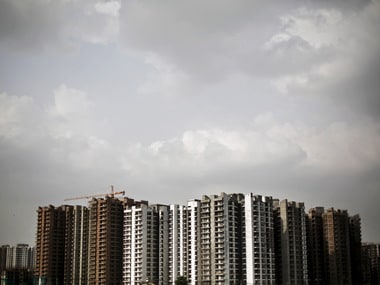More than 18,000 tenements built for the Economically Weaker Sections (EWS) by state government-run agencies in Delhi have no occupants, years after their construction. This was indicated in the Delhi government’s recently-published outcome budget – a report card on what various ministries and departments have done with the outlays in the previous annual budget, in a bid to ensure discipline in expenditure. The data of thousands of dwelling units remaining vacant for years is in sharp contrast with Delhi’s ruling Aam Aadmi Party’s promise in its 2015 Assembly election manifesto of providing “housing for all”. According to the findings, a total of 17,660 dwellings have been built by the Delhi State Industrial and Infrastructure Development Corporation Ltd (DSIIDC), and 3,064 by the Delhi Urban Shelter Improvement Board (DUSIB) for the urban poor under the Jawaharlal Nehru National Urban Renewal Mission (JNNURM). But the record of allotment of these tenements, as mentioned in the outcome budget, is abysmal. The findings show that of the 3,027 dwellings built by the DUSIB, only 1,927 have been allotted to beneficiaries in the last four years. No data related to allotment of tenements built by the DSIIDC has been shared in the outcome budget. [caption id=“attachment_6848481” align=“alignleft” width=“380”]  Residents buildings in the Delhi NCR. Reuters[/caption] Sources in the urban development department say that none of these houses built by the DSIIDC have been provided to the beneficiaries. The construction projects were taken up under JNNURM, which was implemented during the period 2005 to 2014. The outcome budget is also silent on the issue of allotting the tenements built by the DSIIDC in the near future, though it sets the target of providing 3,400 dwellings built by the DUSIB to beneficiaries in this financial year. The issue of vacant tenements is likely to gain traction in the upcoming poll season in the capital, as a third of its population lives in slums and jhuggi-jhopri clusters. So, rehabilitating them in hygienic conditions is one of the major challenges Delhi is staring at. The Bharatiya Janata Party, which has been raising the issue of housing in Delhi to corner the AAP government, has found fresh ammunition in the outcome budget. Vijender Gupta, BJP MLA and Opposition leader in the Delhi Assembly, points to the non-allotment of tenements as an example of the “gross ineptitude” of the present dispensation. “All the dwellings were constructed by previous governments. None of them were built during the present AAP regime. The Delhi government failed to even allot the tenements constructed by the earlier regime,” he said to Firstpost. Last year, Union Minister for Housing and Urban Affairs Hardeep Singh Puri raised the issue of the unallotted dwelling units and wrote a letter to chief minister Arvind Kejriwal, requesting him to expedite the process of allocation. Under the JNNURM project, a total of 52,584 houses were planned across the capital for the Economically Weaker Sections. According to the annual report of the DUSIB published in the year 2015-16, out of six projects taken up by it under JNNURM, construction of four were complete. One of the two projects which were incomplete was shown as 79 percent complete and the other was shown as 97 percent complete. On the other hand, the DSIIDC published a report which showed that construction of 17,660 dwelling units was completed by the financial year 2016-17. The AAP, which rose to power in Delhi in the year 2015 with a landslide victory, does not accept the charge that it did not construct a single tenement. “It is a lie that we received all the buildings readymade from the earlier regime. The construction of a pretty good number of tenements was completed during our tenure. Moreover, we had to repair many of the buildings which we received as constructed ones,” said Akhilesh Pati Tripathi, a member of the DUSIB and also an AAP MLA. When asked why it took so long to allot the dwellings, he blamed the lieutenant governor’s office for delaying the passage of the government’s rehabilitation policy. “Soon after we attained power in Delhi, we formulated a special rehabilitation and relocation policy which was approved by the lieutenant governor (L-G) only in December 2017,” he said. The Delhi cabinet approved the Delhi Slum and JJ Rehabilitation and Relocation Policy, 2015 on June 2017, which was approved by the L-G six months later. Another source in the DUSIB, the nodal agency for the JNNURM project, told Firstpost while explaining the reason of the delay in allotment that it is mandatory to ensure that only deserving people are allocated flats, a demanding exercise in itself. “Each flat to be allotted under the scheme is of 35 square metres in area and costs Rs 1 lakh only to the urban poor. It costs only Rs 1,000 each to the urban poor who belong to Scheduled Castes and Scheduled Tribes. It requires rigorous verification of the beneficiary before a flat is allotted to him or her. We are still in the process of verification,” the source said. Firstpost tried to get a reaction from Mohanjeet Singh, managing director of DSIIDC, on the issue of non-allotment of tenements, but he did not respond.
Out of the 3,027 houses built by the DUSIB, only 1,927 have been allotted to beneficiaries in the last four years.
Advertisement
End of Article


)

)
)
)
)
)
)
)
)



